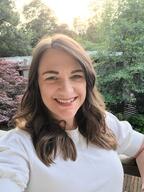
Andrea S. Aldrich, PhD
Lecturer
Political Science
SOCIAL SCIENCE
I am honored to be nominated for the faculty senate. I would like to serve on the senate as a representative of instructional faculty to continue the hard work that the Senate has already done to raise our status on campus. I’m especially interested in increasing our representation at all levels of university governance and administration, working toward more job security and longer term contracts, creating more opportunities for the recognition of exceptional teaching and advising among instructional faculty, and supporting those of us that continue to be active in our research communities.
I have been a lecturer in Political Science since 2017 and will become DUS in July. I have worked closely with the Poorvu Center to make equity, inclusion, and accessibility a priority in my teaching and I will bring this experience to my work in faculty governance. I am also an active mentor with the First Generation/Low-Income student community and have been an advisor for Pierson College for several years. I’m excited to get more involved in university life and governance and look forward to serving if elected.
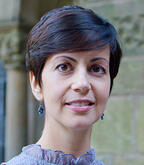
Marijeta Bozovic
Associate Professor
Slavic Languages and Literatures
HUMANITIES
As a scholar working at the intersection of art and politics, I have an intellectual and ethical commitment to the work of organizing and self-governance. In my ten years at Yale, I have served in numerous administrative roles in my home department and contributed to Film and Media Studies and WGSS, with which I am also affiliated. I have worked to develop and institutionalize Translation Studies, organized interdisciplinary intellectual programing, and participated in many other forums for collaboration with faculty and staff across the university. I see such service, including my previous Senate term from 2017-2019, as inextricable from the work we do in research and teaching.
I believe in the project of the Faculty Senate—and I believe it is our duty to ensure that that project endures and meaningfully succeeds. Now newly tenured and with the experience of the pandemic behind me, my priorities are to advocate for a not only adequately supportive but truly inspiring campus climate; for greater equity for junior and instructional faculty; for a sustainable quality of life for Yale families; and for progressive relations with New Haven communities.
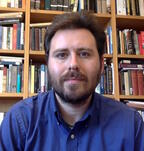
Mordechai Levy-Eichel
Lecturer
Political Science and Humanities Program
SOCIAL SCIENCE
Universities easily fall into ruts. Almost every epoch requires a fresh start.
–Daniel Coit Gilman, BA, Yale, 1852,
Founding President of Johns Hopkins
Ask not what you can do for Yale, but what I can do for you—or something along those lines, y’know, just a little less cliched and syrupy.
Let me be direct. Yale is a great institution; it is often, nevertheless, run poorly. (I’d provide examples, but I’d bet anybody reading this likely has multiple stories themselves, from decisions being made without relevant parties being consulted, to prestige silliness, to inertia, inertia, inertia.) Well, without being even more sentimental syrupy, we are Yale, and we can do better!
I have been at Yale now for over a decade in a variety of lower-level positions, from graduate student (PhD, history, 2015), to post-doc, to year-long lecturer, and now multi-year lecturer, and have been affiliated with multiple departments and programs during my time here (including history, political science, humanities, and Judaic studies).
I am running for senate in order to work on making university administration more clear and transparent, and to generate more faculty involvement in governance and leadership in the first place. To quote a former faculty senator, himself quoting John Lewis, to make “good trouble.” I pledge to hold open office hours for anybody who works at or attends Yale and who is interested in improving or learning more about administration of it.
Finally, my research specialty is the history of education, in particular the rise of the research university, and I look forward to bringing not only my experience and enthusiasm (really!) to the position, but also my expertise to help make Yale a more responsive and active community of scholars!
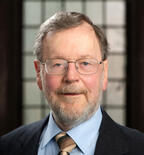
Michael Fischer
Professor
Computer Science
ENGINEERING
I was an advocate for the original creation of the FAS-SEAS Faculty Senate. Since its inception in 2015, I have supported the election process as an outside member of the elections committee and have attended many senate meetings. This past December, I had the honor of becoming a full member of the senate to fill out a vacant term.
I ask for your support for a regular 2-year term so that I can continue the work of building trust and respect between the faculty and the Yale administration. My goal is to build a supportive campus atmosphere where all members of our diverse and inclusive community can thrive and feel that they truly belong at Yale. The FAS-SEAS Faculty Senate can play a major role in realizing this vision by promoting greater transparency on issues of concern and encouraging open debate and discussions with the administration.
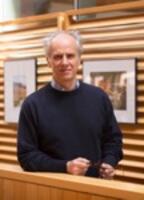
Alessandro Gomez
Professor of Mechanical Engineering & Materials Science
ENGINEERING
I have been on the Yale faculty since 1989 and currently serve as Professor in the Department of Mechanical Engineering and Materials Science (MEMS). Over the years I have become increasingly worried about governance at Yale, with too much power in the hands of a few and an apparent lack of transparency in the decision-making process. Individually, it would be very difficult for any of us to tackle these issues, but collective tactics through the Faculty Senate may bear fruit. After my first two two-year terms, it is apparent that, even though small progress has been made, there is much more to be done. If elected, I plan to work on ensuring a greater participation of the faculty in critical decisions and on redressing unbalances in the economic status of the faculty within FAS and by comparison with peer institutions. I will be a forceful advocate of the needs and priorities of the faculty and will pay particular attention to those who have been all too often neglected: the instructional faculty and the faculty of the School of Engineering and Applied Science.
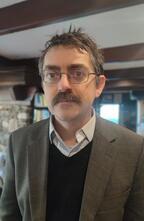
John Hall
Senior Lecturer, Mathematics
SCIENCE
I have worked in the Department of Mathematics for 9 years, teaching and administering all levels of calculus, as well as interdisciplinary courses such as math modeling for the life sciences and linear algebra for economics. I am deeply committed to Yale’s educational mission, and am heavily involved in programs such as ONEXYS (director), FSY and the Eli Whitney Students Program that help FGLI and non-traditional students transition to college. I collaborate with other instructional faculty and the Poorvu Center to train and mentor graduate students and research postdocs in their teaching. I have served for many years on the QR Council (current chair) and the Committee on Teaching, Learning and Advising, and have advised students as a fellow in Benjamin Franklin since that college opened in 2017.
I am honored to be nominated for the FAS Senate - a key advocate for faculty, but also staff, students, and the wider community - and believe I would provide needed representation for instructional faculty, particularly in STEM. The senators I know are among the most dedicated, thoughtful, and caring people I have met at Yale, and I would be excited to join the team!
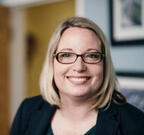
Valerie Horsley
Maxine F. Singer Associate Professor, Molecular, Cellular, and Developmental Biology; Associate Professor of Dermotology
SCIENCE
It is an honor to be nominated to the FAS-SEAS Senate for a third term. I am passionate about working with my FAS colleagues to ensure that Yale continues to make strides in the recruitment and retention of a more diverse faculty and student body, a key step to achieve a truly excellent environment for teaching and research. Specifically, I wish to continue to advocate for community-based efforts that promote belonging for all Yale community members, to encourage transparency and equity in faculty salaries, and to support Yale’s diverse research endeavors in the FAS-SEAS.
A little about me: my research laboratory in the Department of Molecular, Cellular, and Developmental Biology explores mechanisms of tissue repair and homeostasis in the skin. My lab team is composed of postdoctoral fellows, graduate students, and undergraduates and is funded by the National Institutes of Health. I teach undergraduate and graduate students and I hope to help the FAS-SEAS envision a new community of scholars and students.
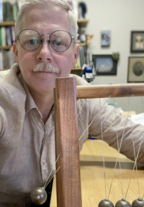
Stephen Irons
Lecturer in Physics
Director of Instructional Labs
SCIENCE
The world, the country, and Yale has changed a lot since I joined the Physics Department in 2001. Over this time, I have worked to bring the teaching of experimental science from the era of paper and pencil plotting using unreliable 30-year-old equipment, to one where students can efficiently collect a large amount of high-quality data and then apply modern tools, such as Python to quickly process, display, and discuss their results.
Effective, challenging, and enjoyable classroom experiences are one of the most important goals for Yale. My focus is on discovering the best methods for teaching undergraduate science and then working to implement them. Soon after I joined Yale, I was part of the first team to bring clicker question technology to Yale and use them in a large lecture course. In addition, I was involved with the development of the TEAL flipped classroom at 17 Hillhouse. I have also taught in labs, large lecture halls, and small seminar rooms. I have designed, developed, and taught, several new classes for undergraduates. I have also been heavily involved in outreach, Chairing the Annual Yale Physics Olympics for over 10 years and organizing numerous other educational events, including ones at the Peabody Museum and the Westport Maker Faire.
Many of my ideas and inspiration have come from colleagues that I have met here at Yale and at national teaching conferences. As a senator, I would like to focus on increasing professional development opportunities for instructional faculty and fostering more interdisciplinary discussions on teaching among university educators. Within the sciences, I would like to push the University to materially recognize the importance of the laboratory experience as part of a well-rounded education.
I would also like to use this platform to address the fact that the undergraduate population has become much more diverse in terms of their socioeconomic background and educational experience. This should compel us to examine how our introductory courses are meeting their needs.
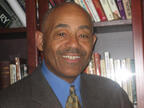
Gerald Jaynes
A. Whitney Griswold Professor of Economics, African American Studies, and Urban Studies
SOCIAL SCIENCE
I have enjoyed my two years on the Senate and believe it has been a productive experience working for the benefit of the faculty and the University as a whole. I have served as Chair or Co-Chair of the Budget Committee and the Governance Committee and hope to continue working on issues concerning ladder and instructional faculty salaries and benefits as well as greater faculty input in University governance. I also hope to persuade the Senate to make teaching loads in the humanities a major issue next year.
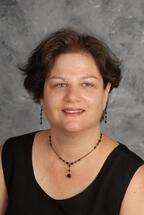
Constance Sherak
Senior Lector I
Department of French
HUMANITIES
It would be a pleasure to serve in the FAS Senate. Since its formation, I have attended FAS meetings and been grateful for the Senate’s work towards shared governance and a voice for communicating instructional faculty concerns to the administration.
In the 17 years that I have been a member of Yale’s language instructional faculty, I have been increasingly involved in collaborative initiatives in the languages that focus on undergraduate teaching and innovative curricular development as well as support for instructional faculty. While this support has brought welcome changes to our ranks, including placement on committees and research and professional travel support, instructional faculty contributions to the university’s educational mission could be more sufficiently recognized. If elected, I would work in favor of a non-competitive professional development leave policy for instructional faculty. I would advocate for phased retirement and emeritus status at the Senior Lector 1 rank. I am invested in pursuing increased transparency and accountability in university governance for all faculty.
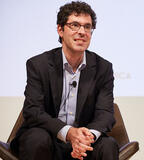
Jason Stanley
Jacob Urowsky Professor of Philosophy and Professor of Linguistics
SOCIAL SCIENCE
As universities become political targets around the country and indeed around the world, faculty senates become essential sites of resistance and defense of our activities and indeed our security. The Yale Faculty Senate has an important role advising and responding to our administration during this time of attack, but also outside our walls representing the values of academia during this moment. I am running to help in this fight.
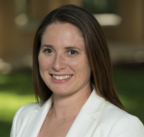
Rebecca Toseland
Senior Lecturer, Department of Economics
SOCIAL SCIENCE
It has been an honor to serve on the FAS Senate for the past two years. During this term, I have served as the Chair of the Undergraduate Admissions and Education Committee, where we have focused our work on understanding and making progress on issues related to mental health and diversity, equity, and inclusion in Yale College. I have also served as a member (last year) and Co-Chair (this year) of the Committee on Instructional Faculty and Academic Support where we have focused on developing, administering, and analyzing a survey of the status of the instructional faculty. We are currently in the process of writing a report based on the results of this survey that will form the basis of the Senate’s future advocacy work to improve the status of instructional faculty at Yale. I would be honored to continue to work in these focus areas, and others, if re-elected.
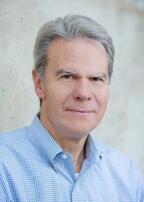
Paul Van Tassel
Professor
Department of Chemical and Environmental Engineering
ENGINEERING
I am very excited about the possibility to serve again in the FAS-SEAS Senate, a key component of university governance at Yale. I am just completing my second Senate term, and this past year had the privilege of being Senate Chair, where I work with the various Senate Committees toward understanding and articulating matters of the highest importance to the faculty. This past year, priority issues have included i) increasing faculty salaries to be in line with our closest peers, ii) improving the university’s governance structure to be more efficient and responsive, and iii) enhancing the level of “shared governance,” i.e. greater faculty input on important university decisions. While much work remains, I am proud of our progress on each of these fronts.
I tend to view many strategic university issues in terms of a balance between fundamental excellence and targeted focused. While recognizing the need to focus certain resources on targeted strengths, I strongly believe the long-term academic strength of the University depends heavily on investments in core areas / disciplines. Another guiding principle is the primacy of the graduate student experience, where I believe reform of the student funding model (to be less reliant on external grants) and enhanced focus on extracurricular opportunities (e.g. on-campus housing, support for internships etc.) could make the experience at Yale virtually unparalleled. Finally, as a 20+ year City resident, I am very interested in the relationship between the University and New Haven. While recent years have seen increased demand for housing and entertainment, parts of the City face significant challenges, especially in the wake of the pandemic. I hope to continue working to find new ways in which Yale may contribute to, and benefit from, New Haven.